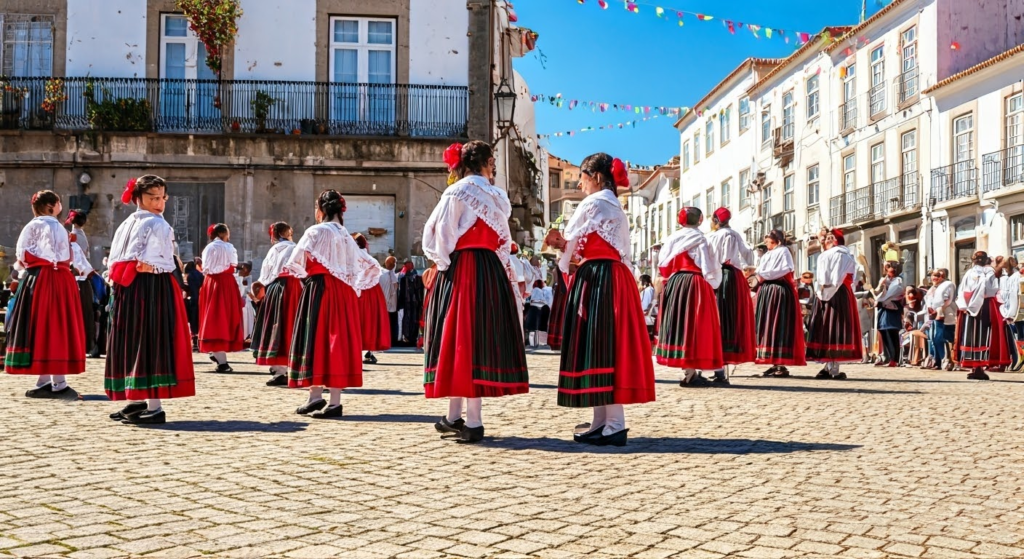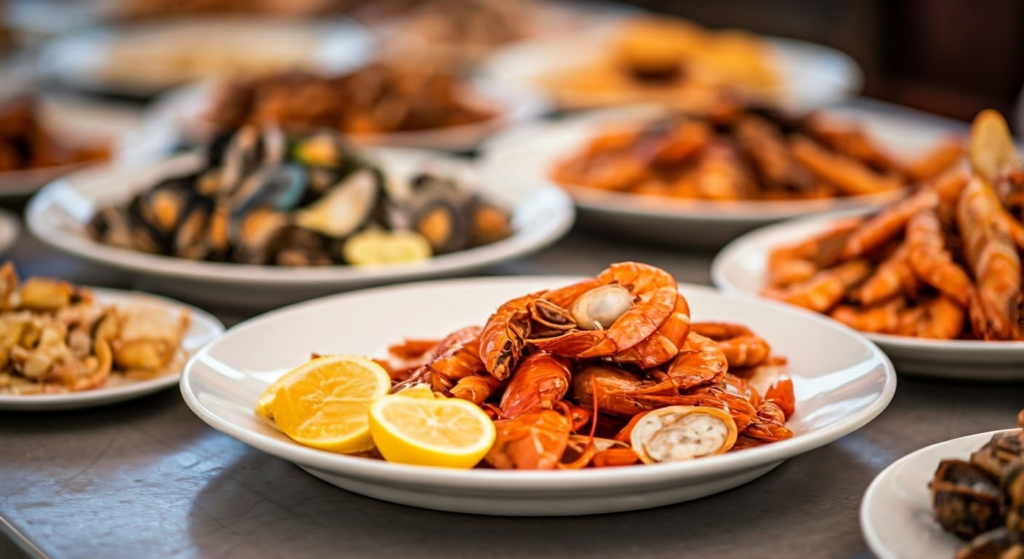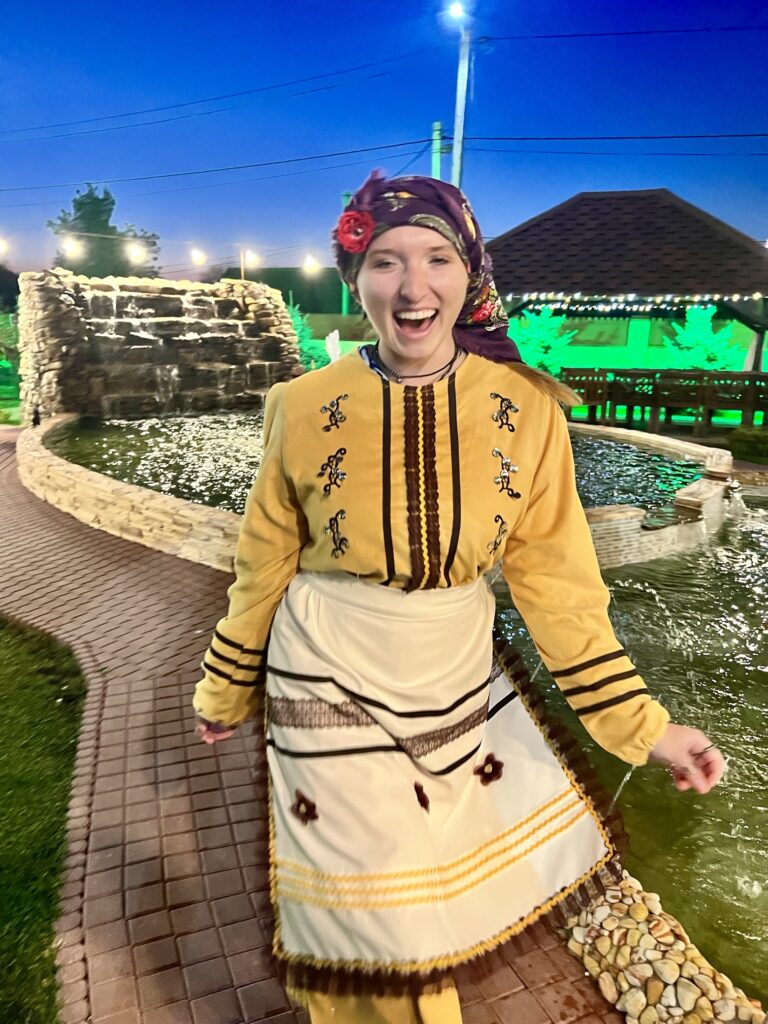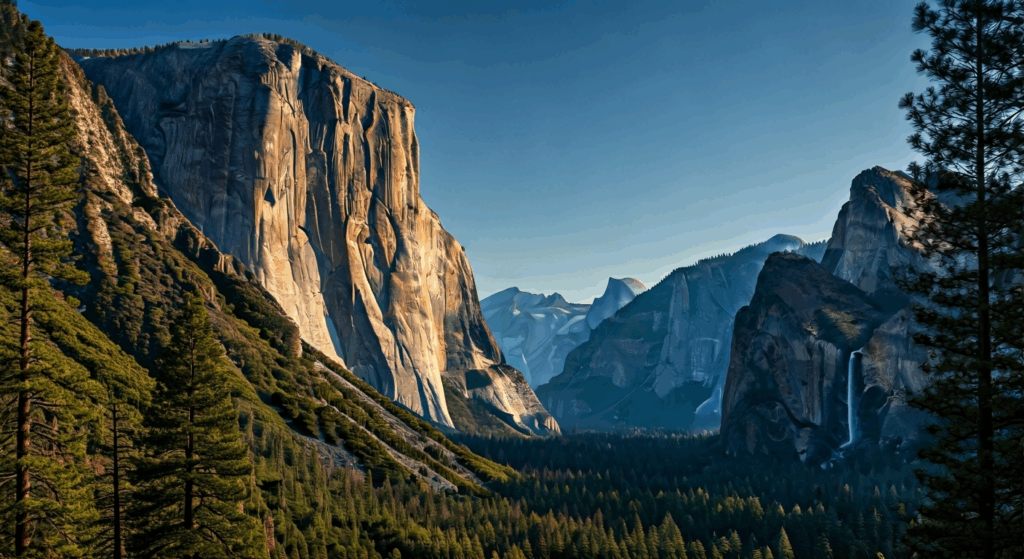
Portuguese Cultural Traditions- Celebrations and Festivals
 April 25
April 25
 21 min read
21 min read

Portuguese Cultural Traditions- Key Highlights
- Explore a vibrant tapestry of Portuguese cultural traditions, and celebrations, from religious festivals to lively music events.
- Discover the significance of saints’ days like Festa de São João and Santos Populares, featuring traditional music, dance, and delectable cuisine.
- Witness the grandeur of historical reenactments at Medieval Fairs in towns such as Silves and Santa Maria da Feira.
- Delight in the sensory extravaganza of the Chocolate Festival in Óbidos, a paradise for chocolate enthusiasts, or immerse yourself in the vibrant flower carpets of Festa da Flor in Madeira.
- Experience the thrill of international music festivals like Rock in Rio Lisboa and Sudoeste, or delve into the unique traditions of regional celebrations like the Almond Blossom Festival in Douro Valley.
Introduction
Portugal is known for its vibrant culture and lively atmosphere all year round on the Iberian Peninsula. The country’s calendar is filled with fascinating festivals and events. These celebrations are deeply rooted in Portuguese culture. They mix history, religion, and fun, all highlighted by the beautiful sounds of traditional music. From ancient religious events to energetic music festivals, Portugal offers a unique experience that visitors will always remember.
Overview of Portuguese Cultural Festivities
Portuguese festivals are not just events; they show the spirit of the country. Each celebration gives a view into Portuguese culture and tells stories of history, faith, and happiness. From the lively bull runs to the calm candlelit parades, every festival reflects the country’s rich heritage.
These events are not only fun; they bring communities together. They are times for sharing traditional food and drinks. People dance to folk music and pass down old customs to the next generations. Joining in these festivals helps one connect with the true soul of Portugal.
The Role of Festivals in Portuguese Society
Festivals in Portugal are not just fun cultural events; they are an important part of the country’s lively culture. They connect its rich history, traditions, and community life. Many of these celebrations happen on national holidays. They give people a chance to come together, celebrate their shared heritage, and enjoy their identity as a group.
During these festivals, cultural activities shine. You can see traditional music and dance performances. There are also detailed displays of handicrafts. Local artisans, musicians, and storytellers have the chance to share their talents. This helps keep old art forms alive and teaches younger generations about them.
These events also provide a link between today and Portugal’s historical past. They remind everyone of the nation’s journey through hard times and victories. This builds a strong feeling of belonging and pride among the people.
Seasonal Variation in Celebrations
Portugal has a festive calendar that shows the seasonal changes in the country. Each time of year has its special celebrations. In spring, there are happy festivals. The land comes alive with bright colors, music, and the sweet smell of flowers. This season is for renewal, marked by Easter celebrations with processions and religious activities.
As summer arrives, the warmth brings lively street parties, music festivals, and traditional events such as Saint Martin’s Day. The smell of grilled sardines fills the air, and the nights come alive with folk dances and fun conversations.
Winter creates a cozy and thoughtful mood. On Christmas Day, families come together to enjoy meals and exchange gifts. New Year’s Eve brings excitement as people look forward to the coming year. Portugal’s seasonal festivals take you on a wonderful journey filled with different experiences.

Major Festivals in Portugal
Portugal has a lively calendar filled with major festivals. These events attract both locals and tourists. Each area has its own special celebrations. They share stories about local culture, history, and traditions.
The pre-Lenten fun of Carnaval kicks off the festivities. Then, there are the summer solstice parties at Festa de São João and the exciting celebrations of Festa das Cruzes. Don’t miss the tasty treats at the National Gastronomy Festival of Santarém. These festivals let you dive into the vibrant culture of Portugal and enjoy its rich experiences.
Carnaval: Portugal’s Pre-Lenten Bash
Carnaval is Portugal’s lively goodbye to winter and a time of fun before Lent. It bursts with color, music, and masked celebrations across the country. Towns and cities, from the north to the south, become stages for big parades. Locals wear elaborate costumes and detailed costumes and fill the streets with joy and excitement.
Lively street parties, powered by traditional music and dance, are at the center of the fun. Each region brings its own twist to the festivities. The air is full of energy, making it easy for everyone to join in and enjoy.
Carnaval shows the spirit of the nation. It highlights how people in Portugal love to celebrate together. This lively event offers a peek into Portuguese culture, where traditions and fun mix to create a stunning show.
Festa de São João: A Summer Solstice Celebration
Festa de São João is one of Portugal’s biggest and most exciting festivals. It marks the start of summer with light, music, and tradition. It takes place on the night before Saint John’s Day. During this festival, the streets of Porto turn into a fun outdoor party full of energy that everyone loves, much like the Queima das Fitas.
A beloved tradition of this festival is the fun exchange of plastic hammers, called “martelinhos.” Both locals and visitors joyfully roam the streets, playfully hitting each other on the head with these colorful hammers. This playful act fills the air with laughter and a feeling of joy.
As people enjoy the rhythm of traditional music and the delicious smell of grilled sardines, they also get to see stunning fireworks light up the Douro River at midnight. Festa de São João truly provides an amazing experience for the senses and shows off the lively spirit of summer in Portugal.
National Gastronomy Festival of Santarém
If you love the true tastes of Portugal, you must not miss the National Gastronomy Festival of Santarém. This festival happens every year in this old city. It celebrates the country’s different foods and shows off its amazing agriculture.
Food stalls packed with regional dishes and local treats fill the streets. They offer a delightful journey for your taste buds. You can enjoy freshly grilled seafood, hearty meat meals, aromatic cheeses, and traditional desserts. There is something special for everyone.
The festival is more than just great flavors. It gives you a view of Portugal’s culinary customs. You can meet local producers, try new foods, and understand more about the country’s food heritage.
Traditional Portuguese Festivals You Should Not Miss
Exploring festivals outside the popular ones can lead to amazing experiences in Portugal. These smaller celebrations happen all year round and across the country. They give a closer look at local traditions and customs without the crowds of tourists.
For instance, you can enjoy the horse events at Feira Nacional do Cavalo in Golegã. You can also experience the deep-rooted traditions of Santos Populares and the old-world charm of Medieval Fairs, including the exciting Festa do Colete Encarnado. Every event tells its own story. They help visitors connect with the heart of Portuguese culture, offering true experiences that stay in your memory long after the festivities are over.
Feira Nacional do Cavalo, Golegã
In the middle of Ribatejo, a region known for Portugal’s love of horses, the town of Golegã changes into an amazing show of horsemanship and tradition each November. This event is called the Feira Nacional do Cavalo, or the National Horse Fair. It celebrates Portugal’s strong bond with horses, especially the great Lusitano breed, just like the annual festival of the red waistcoat in Vila Franca de Xira.
For two weeks, Golegã turns into a colorful display of horse parades. These parades showcase the beauty, skill, and proud history of these wonderful animals. Riders wear traditional clothes and guide their horses through the cobblestone streets, their graceful moves impressing everyone watching.
But the Feira Nacional do Cavalo is not just about horses. It also offers a glimpse into rural Portugal. Fun music performances, traditional dances, and many stalls selling local crafts and tasty treats create a joyful atmosphere. Visitors can dive into the heart of Portuguese horse culture.
Santos Populares Across Portugal
June in Portugal is full of life during the Santos Populares. This is a month-long party that honors the country’s favorite saints: Saint Anthony, Saint John, and Saint Peter. From the charming streets of Lisbon’s Alfama district to the major cities of Porto, towns and cities buzz with excitement.
Each town celebrates its own patron saint in its special way. In Lisbon, where Saint Anthony watches over, the streets come alive with lively parties, traditional dances, and the tasty scent of grilled sardines filling the air during the feast of Saint Anthony. In Porto, the excitement is for Saint John. The city lights up with bonfires, people waving plastic hammers, and a joyful sense of energy all around.
Santos Populares brings communities together. People come out to enjoy music, dance, and food, feeling a strong sense of happiness. It’s a time to see the real heart of Portugal, where tradition and celebration mix wonderfully, showing off their cultural pride.
Medieval Fairs: A Nostalgic Experience
During Portugal’s amazing Medieval Fairs, you can feel like you are stepping back in time. These events take place in historic towns and cities such as Santa Maria da Feira, Silves, Vila Real, and Óbidos. They bring back the spirit of the Middle Ages, where you can see knights, nobles, and lively marketplaces.
The cobblestone streets turn into stages for fascinating reenactments. You can watch jousting tournaments, falconry shows, and see characters dressed in period costumes. The sounds of music from that time fill the air. Artisans also show their skills by making items like leather goods and traditional pottery.
Medieval Fairs offer a mix of fun, history, and culture. You can taste food inspired by the Middle Ages, see traditional crafts, and enjoy the charming atmosphere of a time long ago in Portugal, where history and legend come together.

Religious Traditions and Their Festivals
Religion plays a big role in Portuguese society. This is clearly shown in the many religious festivals held across the country. Each festival is filled with centuries of faith and tradition. These events are not just shows; they remind people of Portugal’s spiritual heritage and its strong ties to religion.
During Holy Week, people take part in solemn processions. There are lively celebrations for saints’ days too, including the Feast of the Holy Spirit. The inspiring Fátima Pilgrimage draws many visitors. These festivals reveal the heart of Portugal, where faith and tradition are closely linked. They show how strong belief is and highlight the value of coming together in Portuguese culture.
Fátima Pilgrimage: A Spiritual Journey
Each year, millions of people go on a spiritual journey to the holy town of Fátima. They are attracted by their faith and the story of Nossa Senhora, Our Lady of Fátima, which three shepherd children reported in 1917. The Fátima Pilgrimage is one of the most important events in the Catholic calendar. It connects believers from all over, showing their devotion together.
The pilgrimage peaks on May 13th and October 13th. Processions of the statue of the Virgin Mary attract huge crowds. Devotees join in with prayers and hymns. This creates a deep feeling of emotion and respect.
The Fátima Pilgrimage is more than just a religious gathering. It shows how strong faith can be and how people seek hope and spiritual comfort. The journey reveals the deep religious commitment of the people in Portugal, showing its lasting impact.
Easter Holy Week in Braga
Semana Santa, or Holy Week, is very important in Portugal. In Braga, the historic city, it is even more special. As Easter nears, especially on Easter Sunday, the city feels both serious and inviting. Its streets become the stage for solemn processions that show the Passion of Christ.
On Good Friday, the most impressive procession happens. Hooded participants walk while carrying candles and religious statues. Their steps can be heard in the old streets. The scent of incense fills the air, and hymns sing out from the old churches. The city seems to pause in respect.
Easter Holy Week in Braga reminds us of Portugal’s strong Catholic roots. It is a time to think deeply, reflect spiritually, and see the deep feelings and commitment that come with this important time in the Christian calendar.
Christmas Traditions in Portugal
Christmas in Portugal is a special time filled with both religious celebrations and happy festivities. During this season, homes and cities turn into beautiful settings. You can find busy Christmas markets filled with handmade crafts and tasty treats. The soft glow of Christmas lights brightens up the cobbled streets, creating a joyful atmosphere.
Christmas Day is about family. People come together to share traditional meals and exchange gifts. As Christmas approaches, many traditions come into play. Nativity scenes, known as ‘Presépios,’ decorate homes and churches. Groups of carolers sing ‘Janeiras,’ traditional New Year songs, spreading festive cheer.
In December, churches are alive with Christmas carols and live music. This adds to the magical feel of the season. Midnight mass on Christmas Eve is a thoughtful event, and Christmas Day brings joyful feasting and family gatherings. Portugal’s Christmas traditions give a warm look into the festive spirit of the country.
Unique Regional Festivals
Portugal has many unique festivals across its regions. Each festival shows the local character and traditions. For example, Madeira has stunning flower displays during its Flower Festival. The Azores celebrate whaling culture with exciting events. In the Douro Valley, you can see the beautiful Almond Blossom festival. Each event gives a special experience.
These festivals allow you to explore the true essence of Portugal. They reveal its different landscapes, customs, and tasty foods. They also show the country’s rich culture and the pride of each region.
Madeira’s Flower Festival
When spring comes to Madeira, the island bursts with beautiful flowers during the Flower Festival. This event takes place every year in Funchal. It celebrates Madeira’s stunning natural beauty and its title as the ‘Floating Garden of the Atlantic.’
The streets become lively with colorful floats. Each float is decorated with thousands of fresh flowers arranged in creative ways. The smell of lilies, orchids, birds of paradise, and many other flowers fills the air, making it a special experience.
Besides the parade, the Flower Festival shows off Madeira’s rich culture. Local artisans share their talents by making intricate flower carpets and traditional decorations. Music and dance performances add to the joyful atmosphere.
Whaling Culture Celebrations in the Azores
The Azores is a group of volcanic islands with a rich maritime history. It celebrates its whaling past with lively festivals that mix history, culture, and respect for the ocean. These events happen on different islands throughout the year. They give a glimpse into a time when whaling was part of daily life.
The festivals include traditional boat races and rowing competitions that remind us of the chase for whales. There are also displays of scrimshaw art, made from whalebone and teeth, honoring the skill and courage of Azorean whalers. Live music performances, with traditional sea shanties and modern takes on whaling life, create a cheerful atmosphere.
Celebrating Whaling Culture in the Azores lets people dive into the islands’ interesting ties with these great animals. These events serve as a strong reminder about the need to preserve marine heritage and support sustainable practices for the future.
Almond Blossom Festival in Douro Valley
As winter fades away, the Douro Valley comes alive during the beautiful Almond Blossom Festival. The hills, famous for their terraced vineyards, are covered in white and pale pink blossoms. Their sweet scent fills the air.
The festival celebrates spring and the hope for a good harvest. It turns villages in the valley into lively places. Traditional music and dance performances fill the streets. Stalls are packed with local crafts, tasty foods, and almond treats.
The Almond Blossom Festival shows off the Douro Valley’s rich cultural heritage. It highlights the area’s natural beauty and its famous winemaking. It’s a great time to enjoy the region’s beauty, taste its delicious food, and feel the happy spirit of spring.

Music and Dance in Portuguese Festivals
Music and dance are the lively heartbeat of Portuguese festivals. They bring a special energy and rhythm to every celebration. From the sad sounds of Fado to the joyful steps of traditional folk dances, music connects people of all ages. It helps them share feelings and culture.
Whether it’s the fun beats of music festivals today, the deep melodies of Fado heard in old streets, or the lively clapping and stomping of folk dances, music and dance are more than just entertainment in Portugal. They are a key part of the country’s culture and a strong expression of its spirit.
Fado Music: An Intangible Cultural Heritage
No musical style shows the spirit of Portugal like Fado. This music expresses longing, saudade, and the bittersweet parts of life. Fado is recognized by UNESCO as an Intangible Cultural Heritage. It has a special place in Portuguese culture. Its sad melodies touch the hearts of the people.
Fado is usually sung in dark taverns and Fado houses. You can find these in Lisbon’s old neighborhoods like Alfama and Bairro Alto. Fado is more than just entertainment. It shares deep feelings and is often voiced by a lone singer with the sad sounds of a Portuguese guitar.
The moving melodies of Fado carry many years of history, struggle, and strength. They give a unique view into Portuguese identity. This music tells stories of love, loss, and fate as well as how people connect to their roots. It offers a meaningful and unforgettable cultural experience.
Folk Dance Festivals: Preserving Traditional Dances
Folk dancing in Portugal is an exciting way to show off its culture and traditions. Each dance, like the lively ‘vira’, the detailed footwork of the ‘corridinho’, and the smooth movements of the ‘fandangos’, tells a story. These dances help keep customs alive, passed down from one generation to the next.
Festivals that focus on folk dance happen all over the country. They give people a chance to see and feel this rich culture. Villages and towns come alive with the beats of traditional music. The festival features dancers wearing bright costumes and moving through the streets, showcasing the spirit of Portuguese folklore.
These festivals are more than just shows—they celebrate community. They bring people together to enjoy their shared heritage. The joyful energy of folk dancing, along with the colorful costumes and lively music, makes for a fun atmosphere. It encourages everyone to join in and feel the true spirit of Portuguese folklore.
Contemporary Music Festivals: Rock in Rio Lisboa
Portugal respects its traditions, but it also loves modern music. Festivals like Rock in Rio Lisboa highlight how music is changing in the country, while also celebrating classical music concerts. This big event takes place every two years in Lisbon. It attracts crowds from around the world who share a love for music and enjoy the fun of live shows.
Rock in Rio Lisboa features a diverse lineup. You can see global stars as well as favorite local artists. The music at the festival includes everything from rock and pop to electronic dance music and more. The festival space turns into a lively city of music, full of energy. There are many stages, art displays, food stalls, and a thrill in the air.
Rock in Rio Lisboa is more than just a music festival. It shows how Portugal blends modern culture with its traditions. It reflects the country’s welcome for new sounds, its lively spirit, and its love for making great memories.
Culinary Highlights in Portuguese Festivals
Food is closely connected to Portuguese culture. It plays a key part in its festivals. Each celebration brings a delightful mix of tastes and smells. You can find street food stalls filled with local dishes. There are also big feasts made with fresh, seasonal ingredients. Portuguese festivals are a fun journey for your taste buds.
During events like Santos Populares, you can smell the amazing grilled sardines in the air. At the Chocolate Festival in Óbidos, you can enjoy sweet treats. Wine harvest celebrations offer strong flavors that everyone can enjoy. Portuguese festivals let you see what makes Portuguese cuisine special. Tradition and flavor come together beautifully in these events.
Seafood Festivals Along the Coast
Portugal has a long coastline that shows its rich maritime history. This coastline gives plenty of fresh seafood, which is the star at many Seafood Festivals. These festivals happen in coastal towns and villages all year round. They celebrate what the ocean provides and highlight the flavors of Portuguese food.
At these festivals, you can find huge grills filled with fresh sardines. Their smoky smell fills the air and attracts both locals and visitors. There is also grilled octopus topped with olive oil and garlic, along with hot bowls of ‘arroz de marisco,’ which is a tasty seafood rice dish. The variety of food is as rich as the ocean itself.
Seafood Festivals show how closely Portugal is connected to the sea. They give food enthusiasts a chance to enjoy the freshest catches, cooked in traditional ways and full of flavor. They are a wonderful way to dive into Portuguese culinary culture, where the ocean’s bounty truly shines.
Wine Harvest Festivals in Porto and Douro
As summer ends and autumn colors the vineyards in gold and red, the Douro Valley, where Port wine began, is buzzing with excitement for the wine harvest. From the old cellars in Porto to the steep vineyards by the Douro River, the area is alive with the energy of ‘vindima.’
The air smells sweet with fermenting grapes. Celebrations fill the valleys with traditional music, dancing, and plenty of wine. Visitors can join in grape stomping, see old winemaking techniques, and taste new wines.
Wine Harvest Festivals in Porto and the Douro Valley show off Portugal’s famous winemaking skills. They let people see the love and hard work put into making these famous wines. It’s a time to enjoy the harvest’s end, taste the vineyard’s fruits, and experience the heart of Portuguese wine country.
Chocolate Festival in Óbidos
Step into a sweet treat at the annual Chocolate Festival in Óbidos. This charming medieval town becomes a paradise for chocolate lovers. The festival celebrates chocolate and shows Portugal’s long love for this delicious treat.
The festival showcases the skills of famous chocolatiers from Portugal and elsewhere. You can see beautiful chocolate sculptures, unique pralines, rich truffles, and traditional Portuguese sweets with chocolate. These treats are perfect for anyone with a sweet craving.
Enjoy chocolate tastings, workshops, and live shows by expert chocolatiers. The Chocolate Festival in Óbidos is a delight for your senses. It’s a time to enjoy the best chocolate, find new favorites, and celebrate the magic of this classic treat.

Conclusion
Portuguese cultural traditions are full of life. They include fun festivals, music, dance, and tasty food. From the lively Carnaval to the calm Fátima Pilgrimage, each event shows what makes Portugal unique. You can enjoy seafood by the coast or taste chocolates in Óbidos. These festivals are great for both locals and visitors. You can dive into Portugal’s rich history by joining the Flower Festival in Madeira or taking part in the Whaling Culture celebrations in the Azores. Feel the joy and community spirit at these events. They are memorable for everyone. So, join in the fun and make great memories in Portugal’s colorful cultural scene.
Planning a visit to Portugal? Check out my Complete Travel Guide!
Frequently Asked Questions
What is the Most Attended Festival in Portugal?
Rock in Rio Lisboa is one of the biggest festivals in Portugal. This popular event attracts large crowds. People come for its vibrant culture and great international artists.
How Do These Festivals Impact Portuguese Culture?
These festivals are important for keeping Portuguese culture alive. They support cultural activities, help to maintain traditional music, and add to the country’s vibrant culture, especially during national holidays.
Are There Festivals That Occur All Year Round?
Many festivals change with the seasons, but there are celebrations all year long. From Christmas Day to New Year’s Eve and Saint Martin’s Day, celebrations go on. They include national holidays and seasonal fun.
Can Tourists Participate in Traditional Festivals?
Tourists can join in on the traditional festivals. The lively atmosphere, vibrant culture, and friendly locals make it easy for everyone to enjoy Portugal’s cultural heritage.
What Are Some Must-Try Foods at These Festivals?
Food enthusiasts will love the food available at Portuguese festivals. You have to try grilled sardines at Seafood Festivals. There are also chocolate treats at the Chocolate Festival. Don’t miss out on the locally-made wines during the wine harvest celebrations.
Planning a Visit to Portugal? Explore more of Portugal below:
Best Places to Visit in Portugal
Recent Posts
Related Posts
Explore Yosemite National Park: A Nature Lover’s Paradise
Key Highlights Next, let’s dive into what makes Yosemite National Park an unmatched treasure of the United…
Local Favorites: What Food to Eat in California
Key Highlights Introduction California, also called the golden state, is a great place for people who love…
Discover the 20 Best Places to Visit in California Now
Key Highlights Introduction California is a place that has something for everyone. You can find natural beauty…




